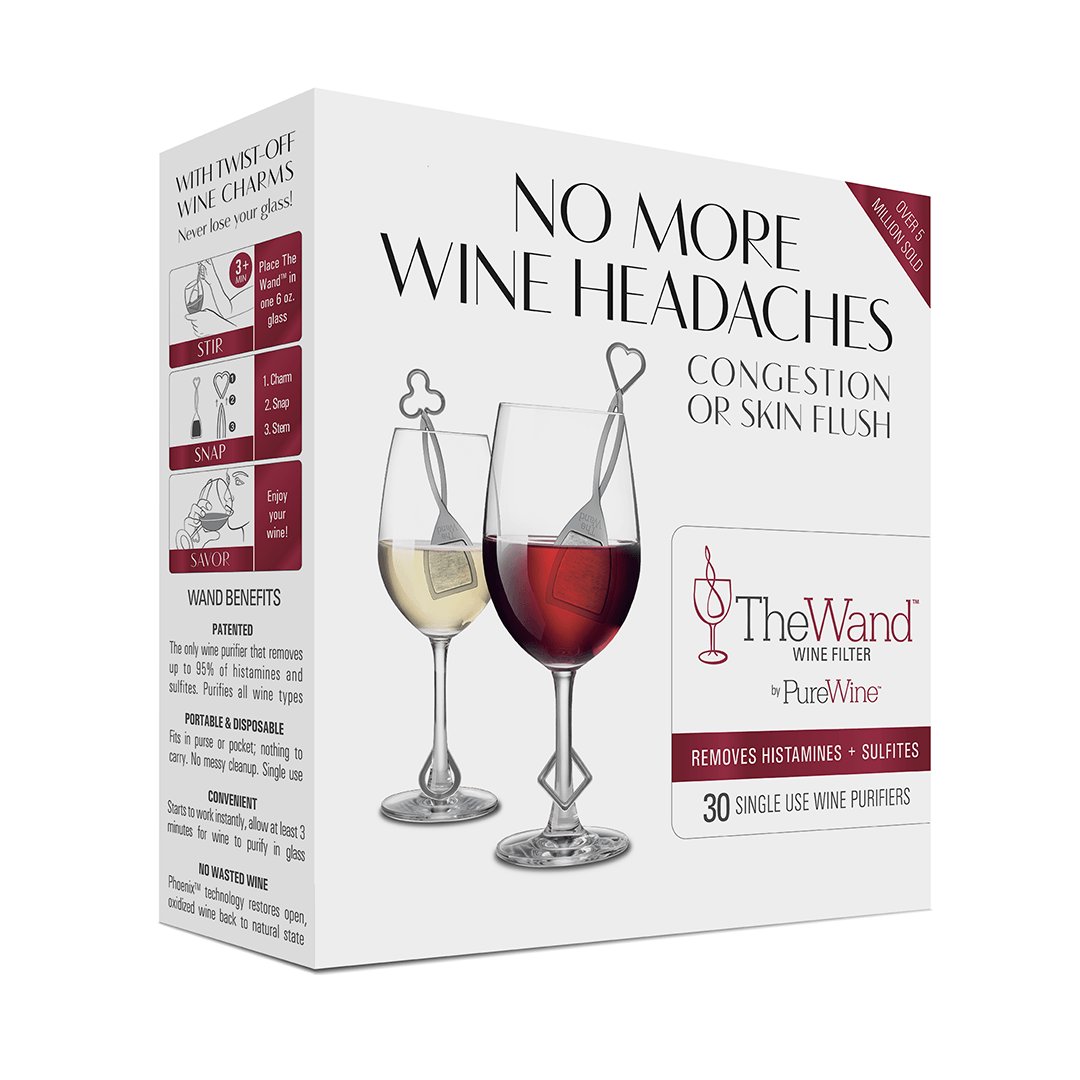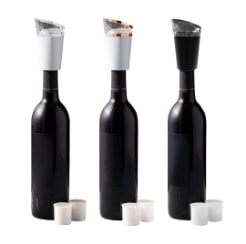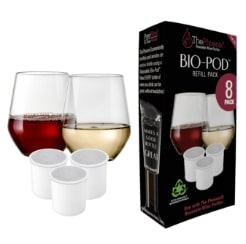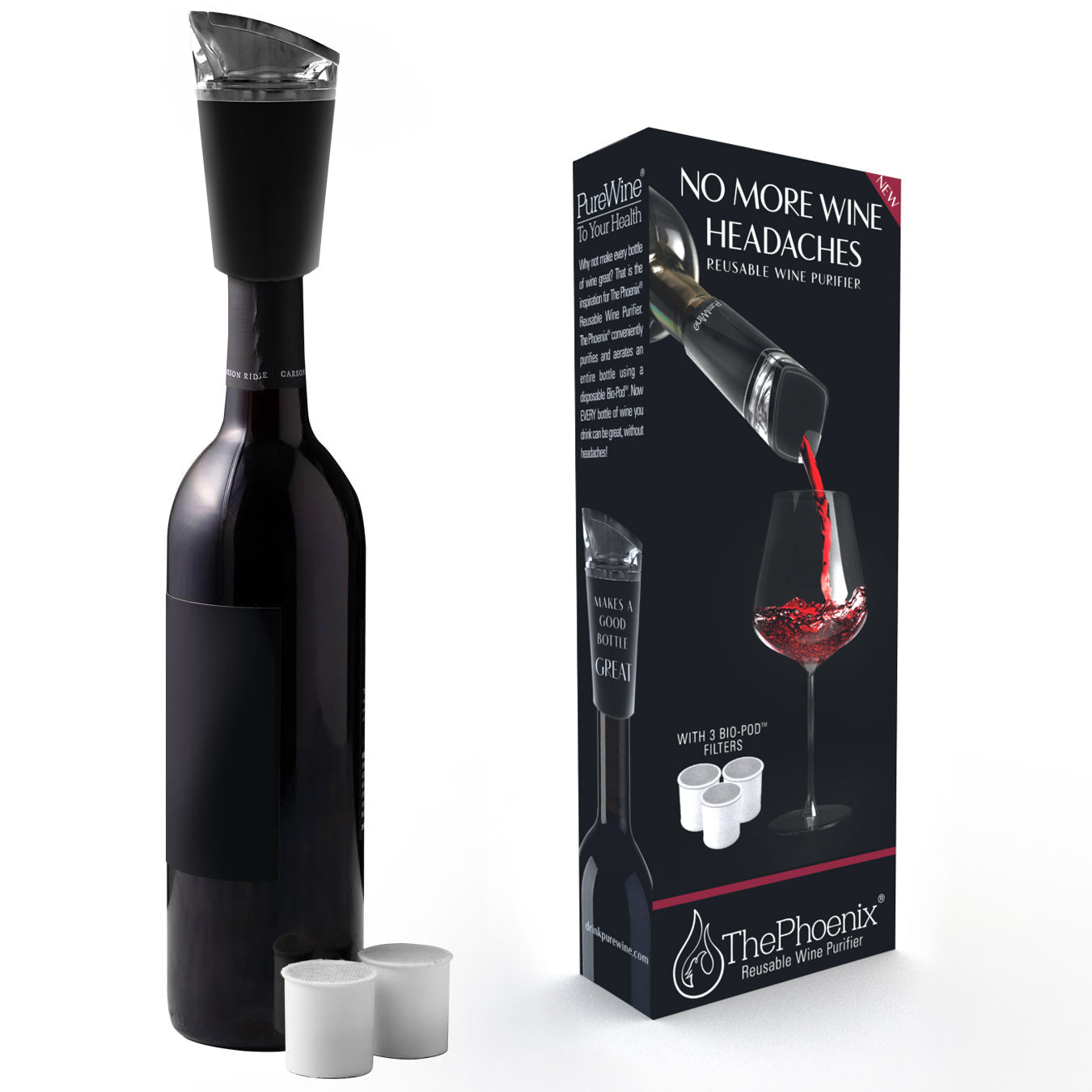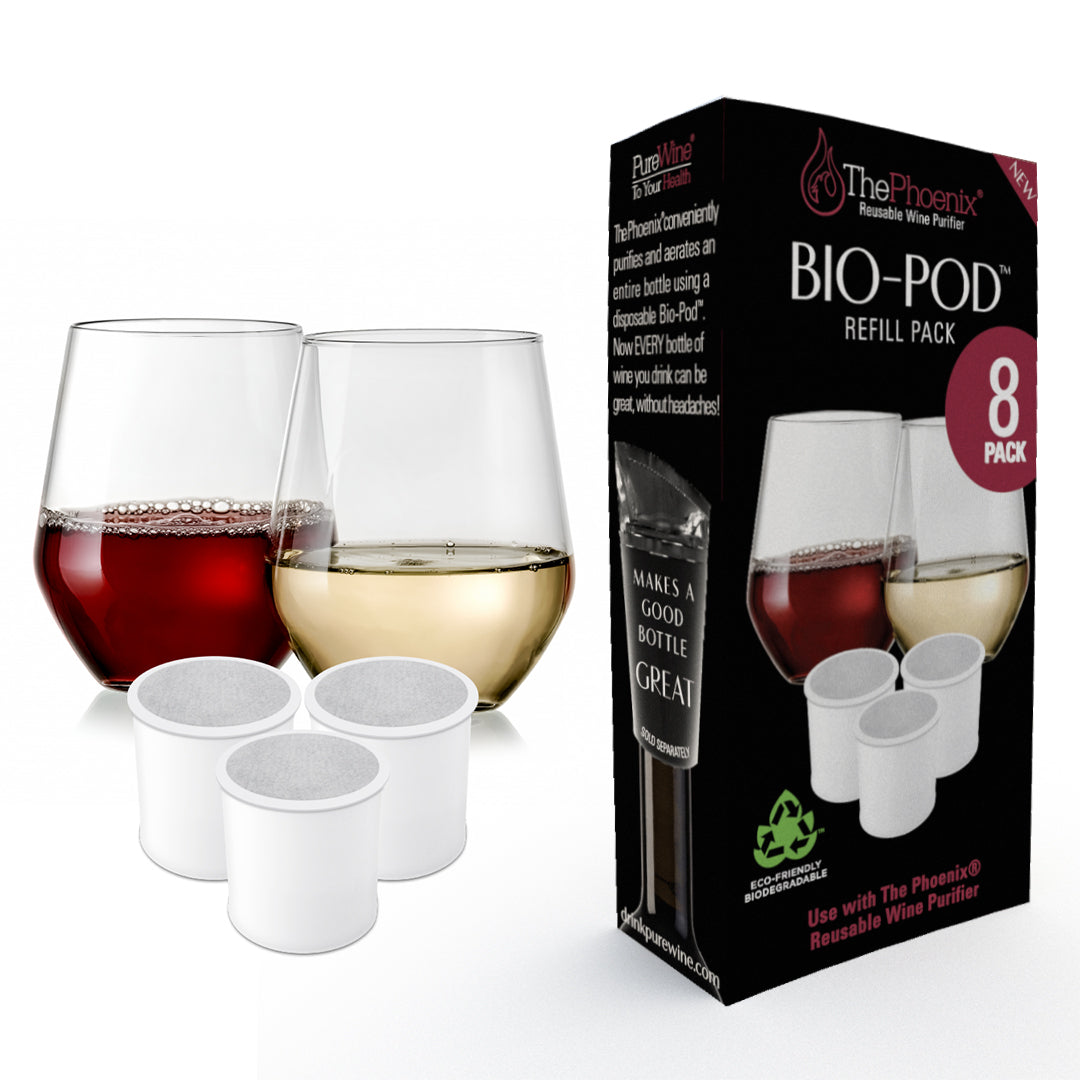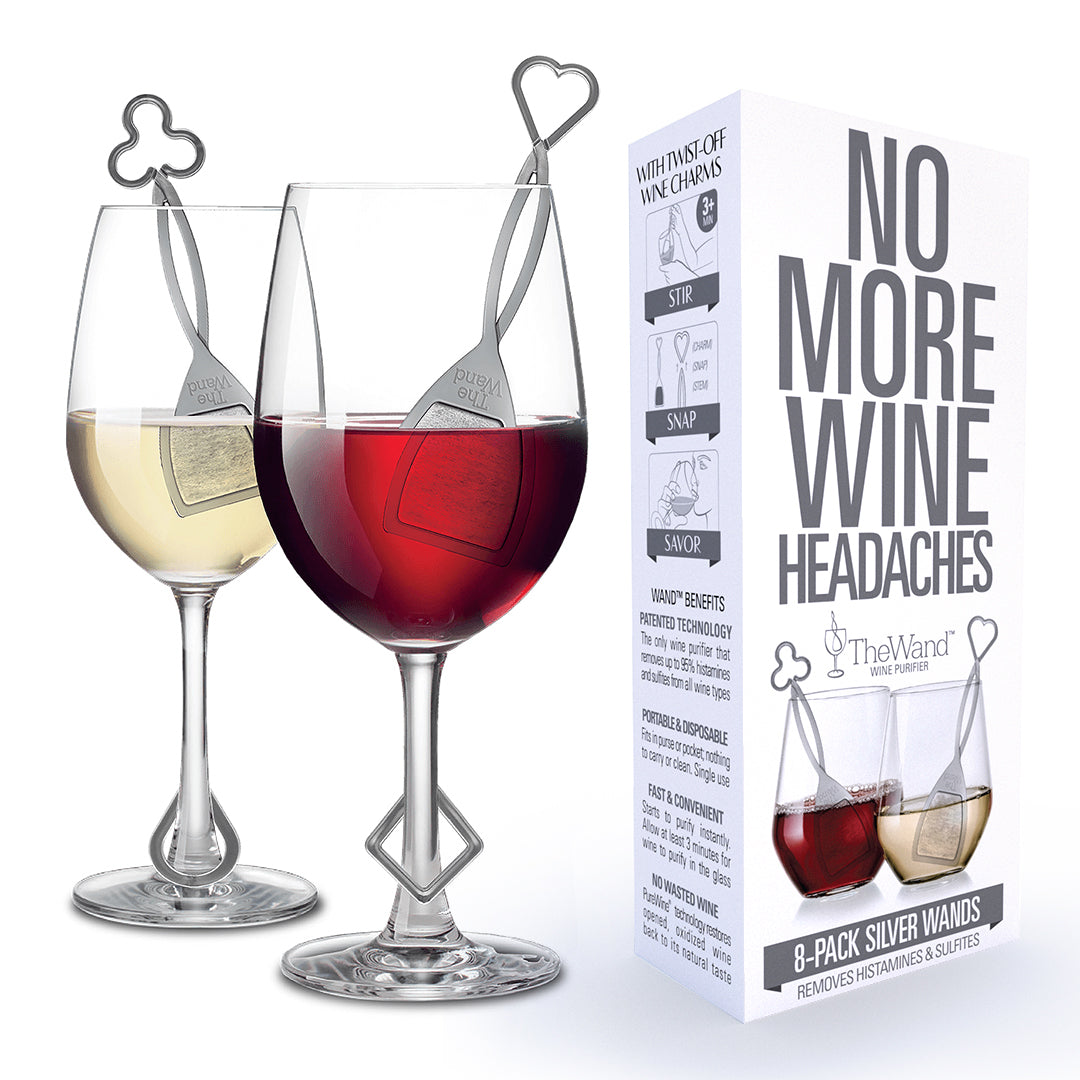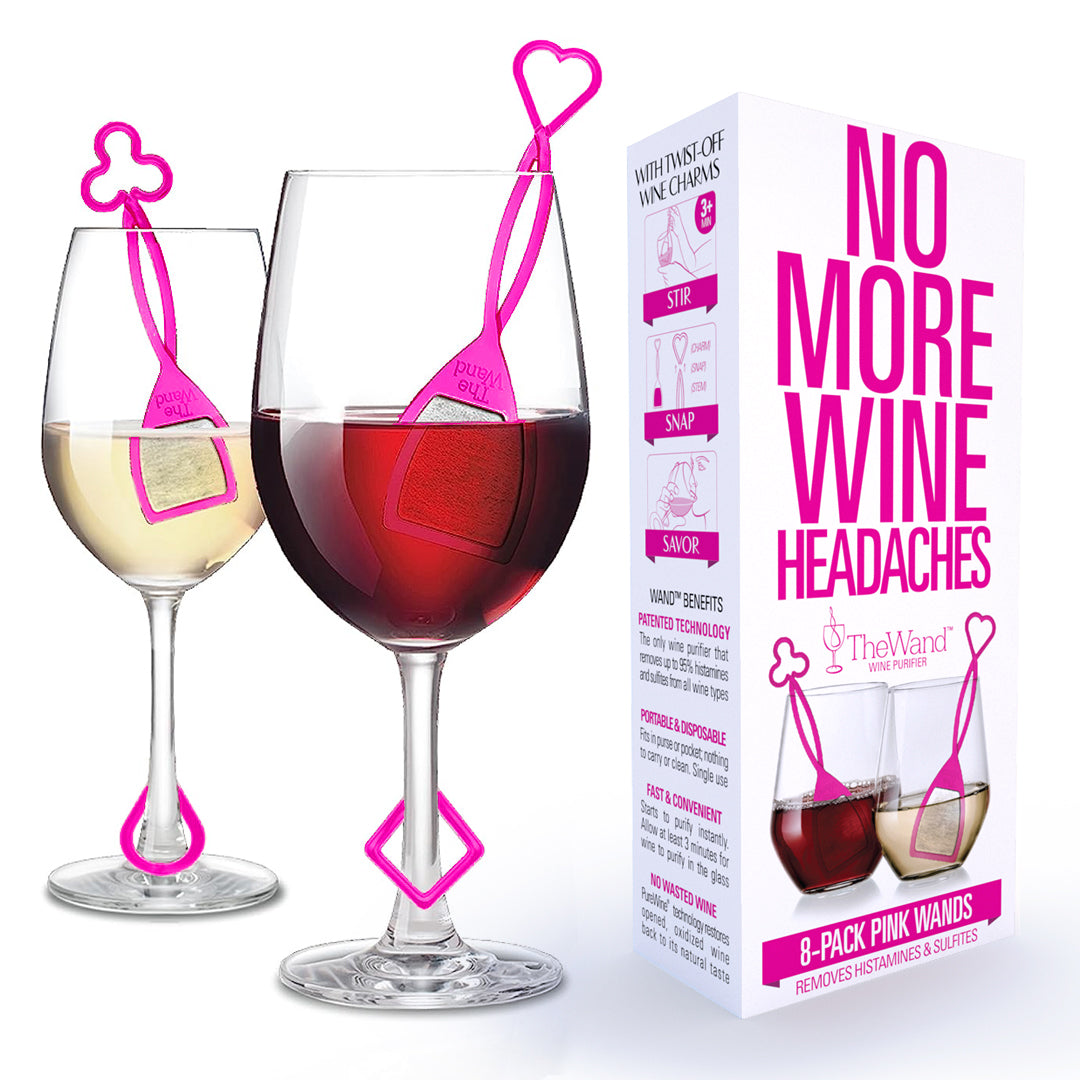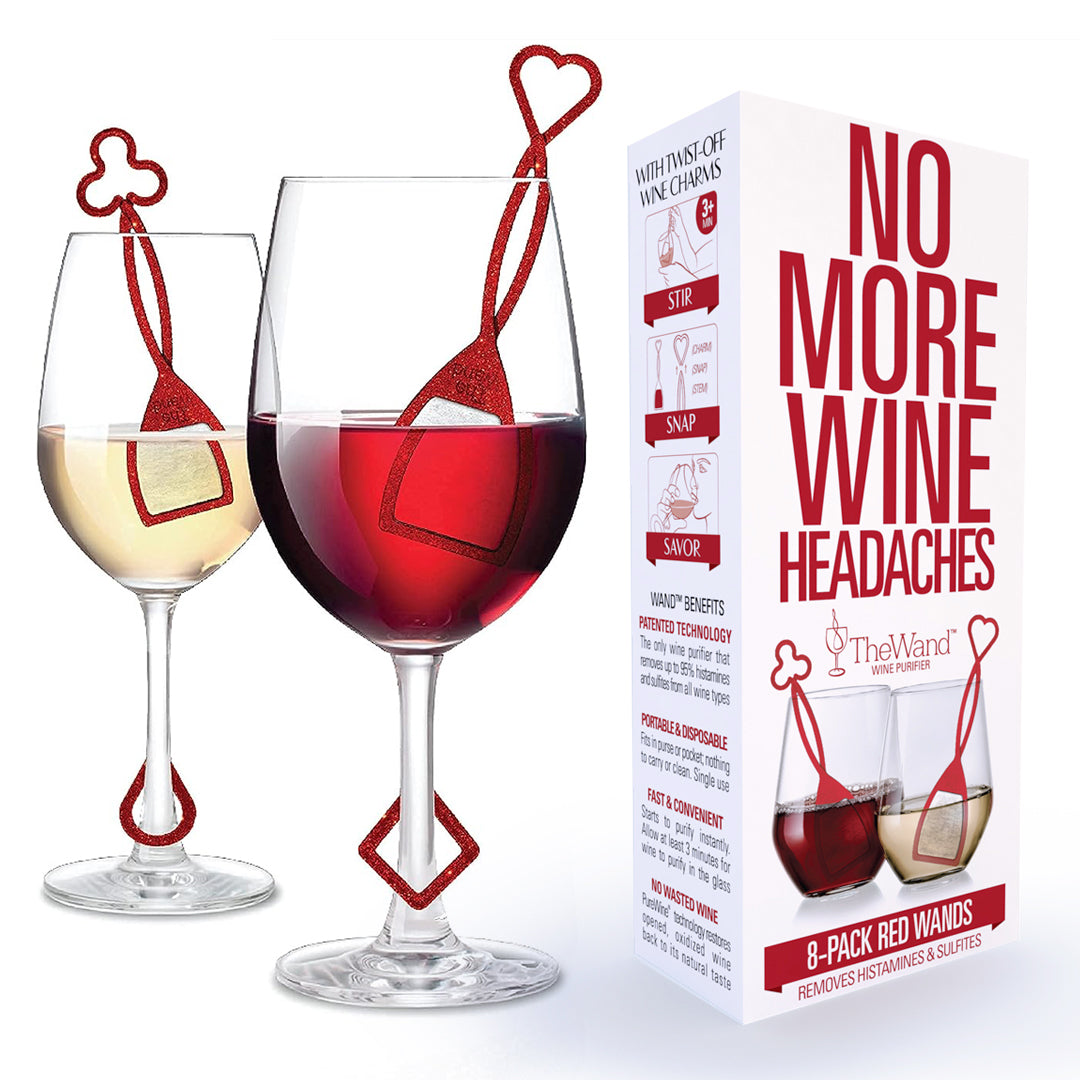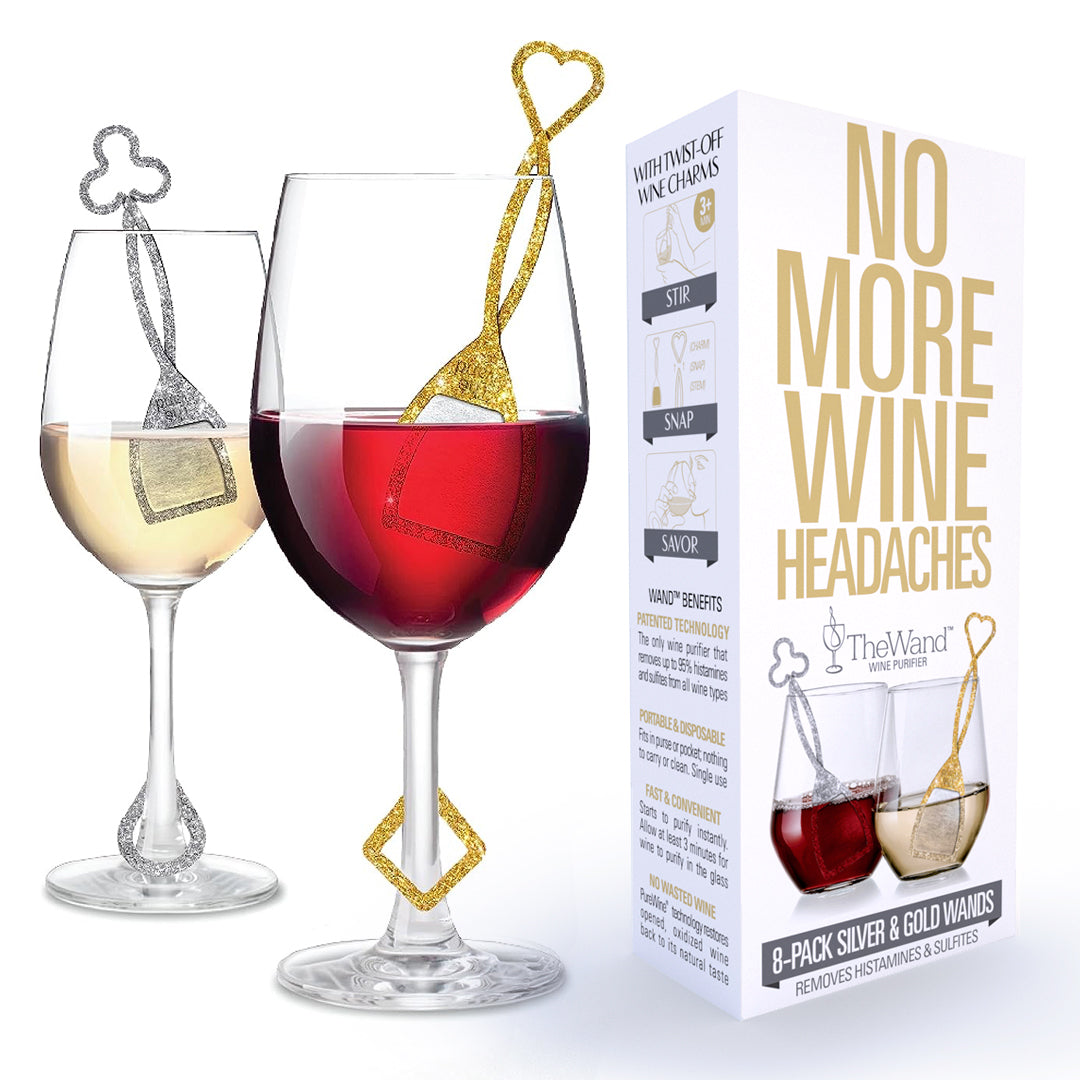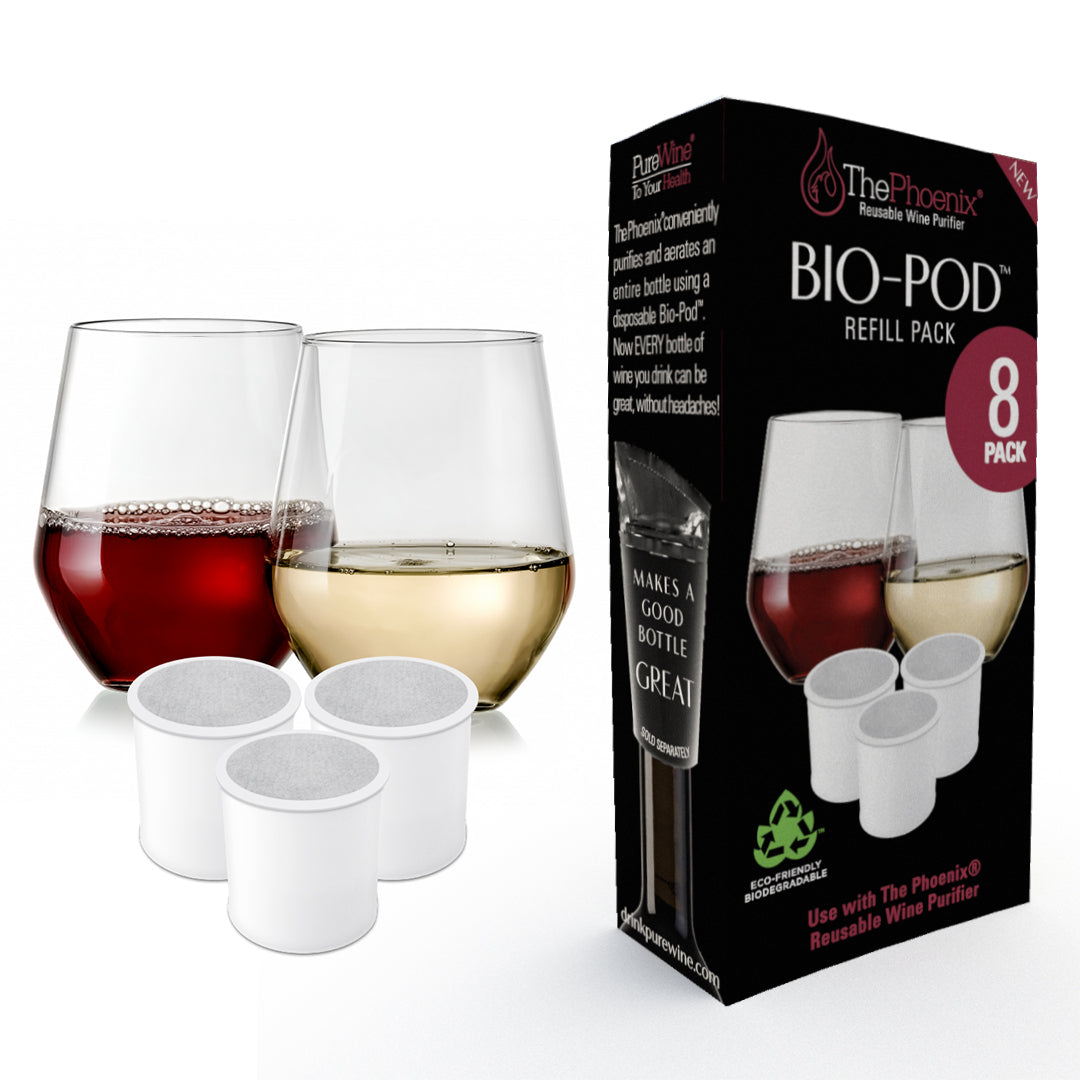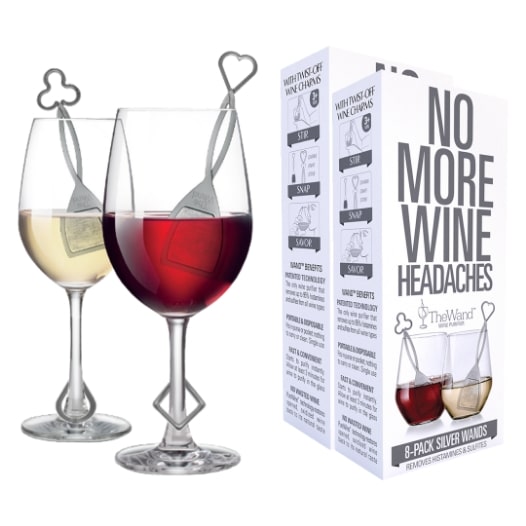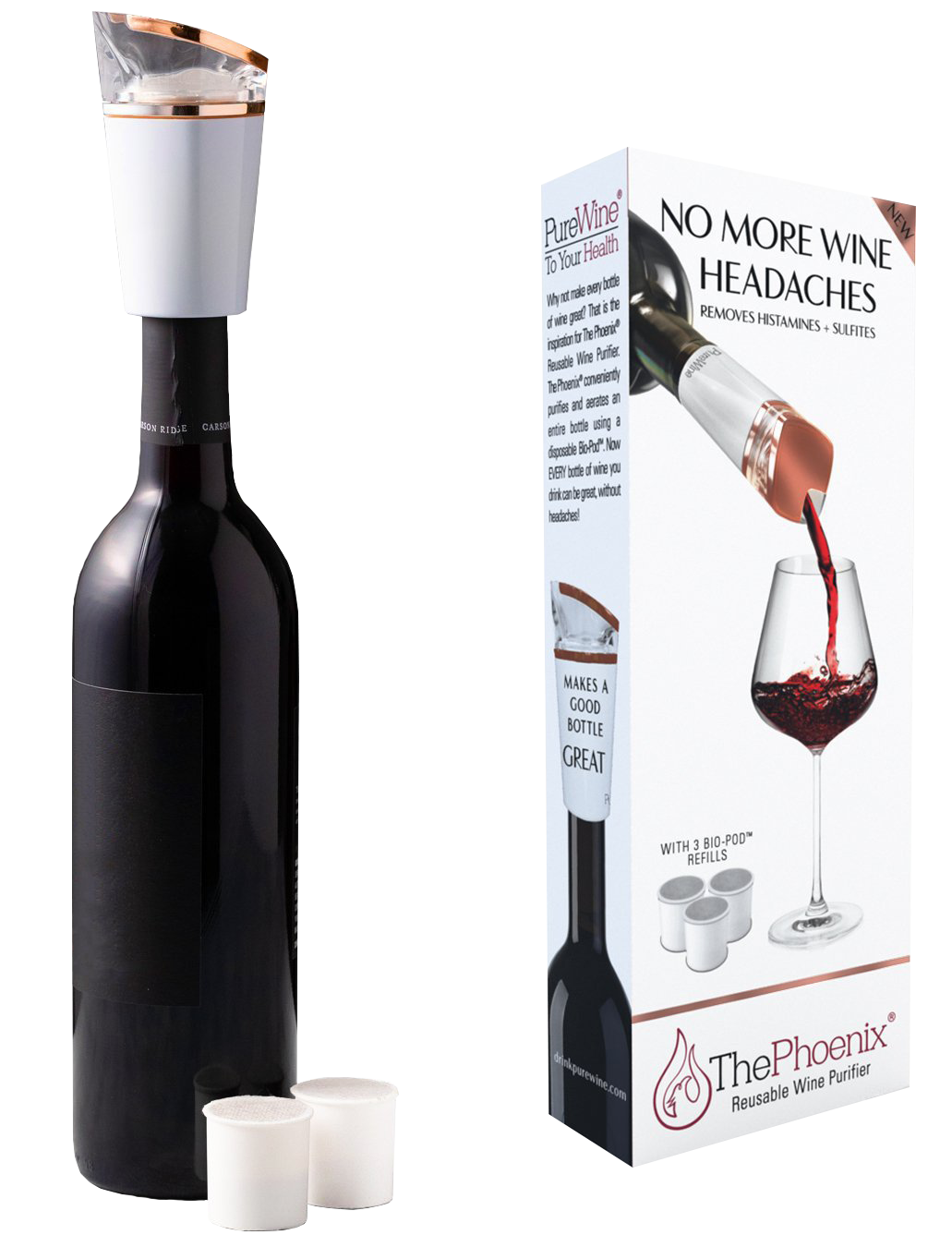Sulfites, Histamines & Never-Ending Wine Myths: Part Two
Sulfites, Histamines & Never-Ending Wine Myths - Part Two
In my previous blog, I addressed three common misconceptions people use to explain why a single glass of wine may cause them to feel terrible the next morning (if not later that night). It’s now time to focus on myths surrounding organic wines and the fallacy of using preserved foods such as dried fruit to test your sulfite sensitivities.
“Organic wines don’t contain sulfites, so I only drink them now.”
Sulfites are critical to producing high-quality wines, and most organic wines simply don’t taste very good.
The organic wine category has been growing for several years and that trend shows no sign of slowing down. While it’s still a small portion of the overall wine industry, more than a billion bottles of organic wine are expected to be consumed by 2022. That means a lot of people, in my opinion, are not drinking the best tasting wines.
For reference, organic wines must be made from grapes grown under a tightly controlled agricultural environment. Specific pesticides cannot be used and only natural fertilizers are allowed such as green manure or compost along with clear requirements around the fermentation and bottling processes. Which most of us would agree is a great thing for the environment. That’s why most organic wines normally cost more. Actual addition of sulfite preservatives to the wine is not allowed, but naturally occurring sulfites ARE permitted (less than 20 parts per million, or 20ppm). The label typically includes phrases such as “Contains No Detectable Sulfites” or “No Preservatives Added”.
Sulfite Levels In Wine

Why Does Organic Wine Taste Bad?
Unfortunately, from my experience, the taste of these wines is generally considered inferior to the same wine varietals that have sulfites added. This is because sulfites are critical to the production of high-quality wines and maintaining great taste during storage. However, many of us need to remove sulfites prior to drinking in order to enjoy our glass or bottle without the ugly side effects. Organic wines can help some wine drinkers reduce the negative side effects, but that doesn’t mean they will be as enjoyable to drink.
That doesn’t mean you’re not sensitive to sulfites. It just means your stomach works properly to neutralize the sulfites in wine.
The first thing I often hear from people wanting to test their sulfite sensitivity is to eat dried fruits like apricots or mangos. This is the testing recommendation used throughout the wine community and is a HUGE myth. Yes, these fruits are often preserved with sulfites to slow the oxidation processes that reduce quality and make the fruit quickly turn brown. This is absolutely the wrong approach for how to test for sulfite sensitivity.
These dried fruits are SOLID foods. When sulfites are added to the fruit during packaging, sulfites become chemically bound to the surface of the solid food almost immediately and are not able to be absorbed into your body. Once eaten, the surface-bound sulfites are instantly neutralized when they reach your stomach by the contents in your gut (such as stomach acids and other food material). When deactivated, the sulfites have been chemically transformed and are unlikely to cause any “allergy-like” reactions if they are absorbed into your body.
Sulfites - Bound vs. Free
On the other hand, wines are LIQUIDS. Wine sulfites exist in two forms: “bound” and “free”. Bound sulfites have chemically reacted with other wine components like proteins and are not able to be absorbed into your blood. The free sulfite form, on the other hand, acts as a preservative for the wine. This form is able to freely and rapidly absorb into any tissue it contacts prior to reaching the gut (like your mouth lining; think sublingual vitamins). The mucosal lining of the mouth and tongue
can rapidly absorb free sulfites into the blood stream where they can cause sensitivity reactions throughout your body. That is why many people with sulfite sensitivities often get swollen lips and mouth from exposure to sulfites as the wine is swirled in the mouth prior to being swallowed.
Are Sulfites in Dried Fruit Bad For You?
At PureWine, we have conducted a series of experiments to confirm this process. We exposed dried mangos, preserved with sulfites, to a solution containing 15% ethanol (the average amount of “alcohol” in wine) that served to mimic wine. By assaying the ethanol solution over time, we demonstrated that there were almost no detectable amounts of sulfites that were “free” and therefore able to be released from the surface of the mangos. These studies confirmed that using dried fruit to test sulfite sensitivities is a poor indicator. In other words, it can lead people to believe sulfites are not causing their wine intolerance when just the opposite is true.
Wine Sulfite Sensitivity Test
Here is a simple test we recommend people do to establish their sensitivity level to sulfites. Select a sweet white wine (such as a Sauterne, Riesling or champagne) since these typically have much higher levels of sulfites than red wines (as high as 350 ppm versus 20 to 50 ppm for red wines). Consume 1-2 glasses very slowly while swirling it in your mouth for extended periods of time before swallowing.
This allows the sulfites time to be absorbed into the linings of the mouth and nasal passages. If you experience nasal congestion, headache, throat tightness, hives, mouth or lip swelling from this simple test then you are probably reacting to the sulfites in the wine. However, if you do not have any side effects after this test, then you do not need to be concerned about a sulfite sensitivity.
So, if your red wine intolerance isn’t due to sulfites, then what’s in the red wine that your body is reacting to? That’s a great question I’ll answer in my next blog post. We’ll also discuss histamines, something called biogenic amines, and how these bioactive agents interact with your body.
Cheers,
David Meadows, PhD
CEO & CoFounder
P.S. Have a commonly held wine belief you want to be answered? Send it to David+Derek@drinkpurewine.com and I’ll try to answer it in a future post. Who knows. You may even get a few free Wands™ for your effort.
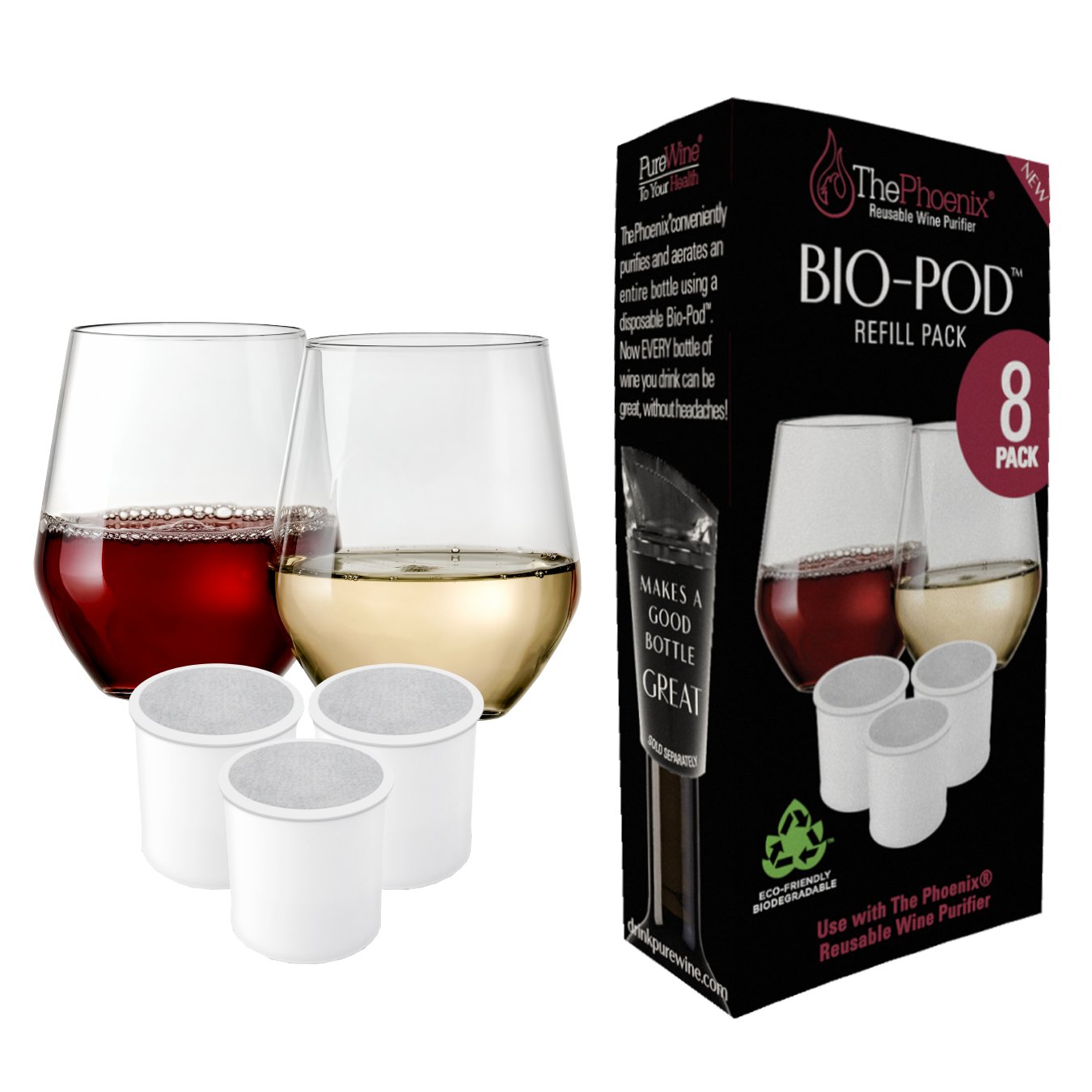
 (20 reviews)
(20 reviews)